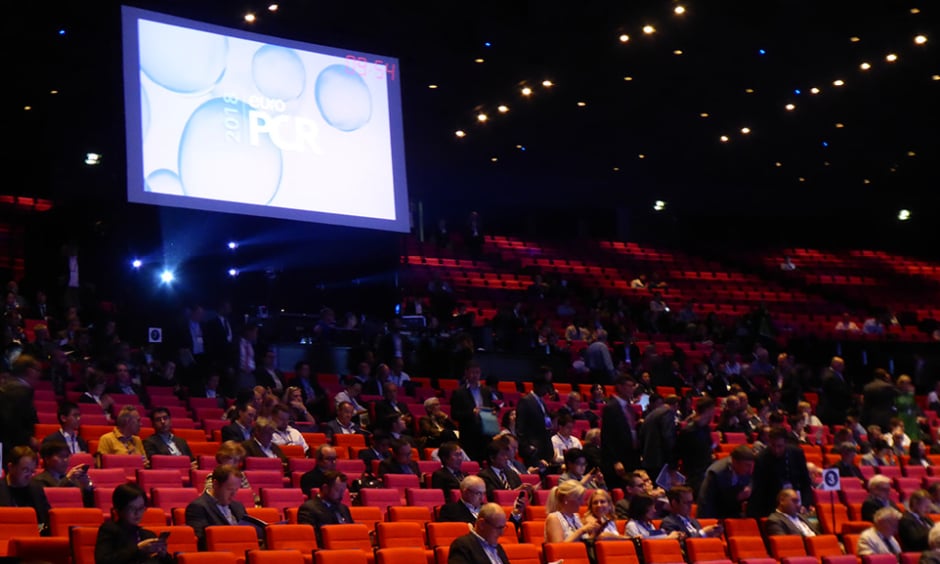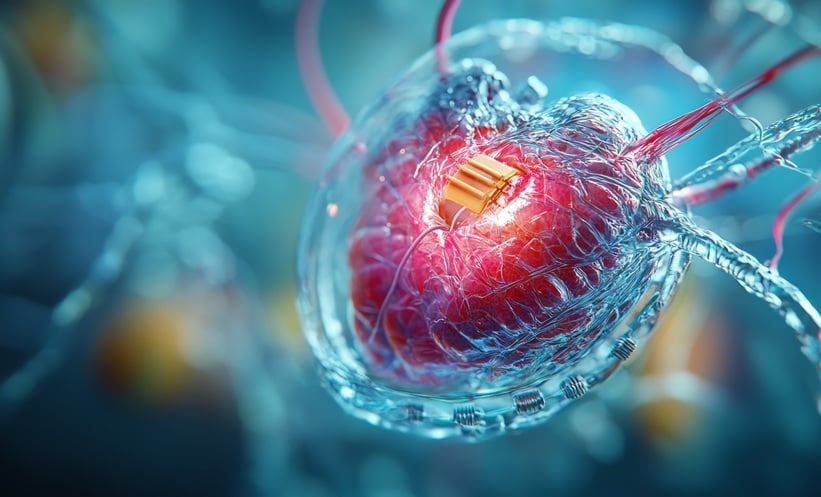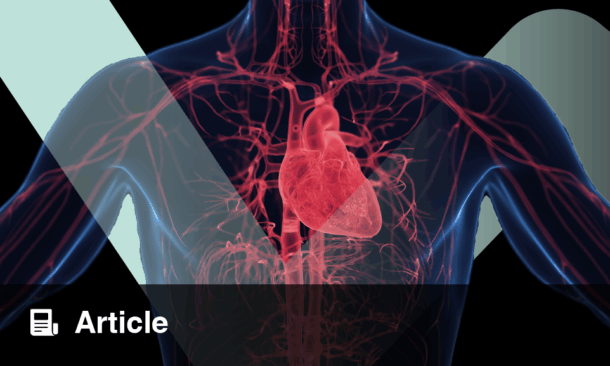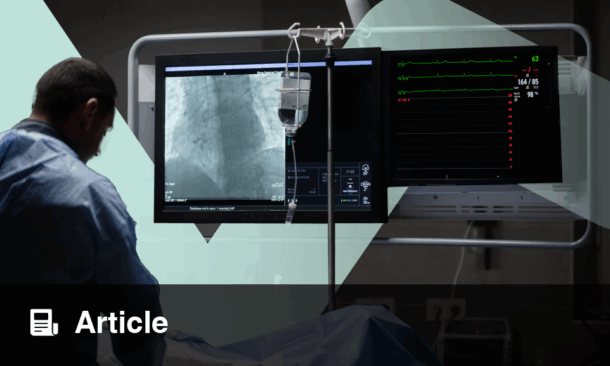This year’s spectacular EuroPCR Congress saw many reasons to celebrate, including both pioneering research from the field and personal achievements. As always, the organising committee took great pleasure in congratulating the individuals involved in these successes by way of prestigious awards and grants; these included presentation of the renowned Ethica Award, the Best Clinical Case Award, and the EAPCI Awards, as well as declaration of the winner of this year’s PCR’s Got Talent competition for the Best Abstract Award.
Ethica Award
The Opening Ceremony of EuroPCR 2018 saw two pioneering European practitioners recognised for their outstanding work in transforming cardiac care. The first recipient of the Ethica Award, Dr François Bourlon from Monaco, who is known for his care of African children with congenital heart disease, played a vital role in the recent establishment of a cathlab in Mauritania. Prior to this, he created the Sustain Health development in Africa through Responsible Education (SHARE) initiative in 2008, which provides essential training for African cathlab staff. The Ethica Award was also given to Dr Philip Urban from Switzerland, who has worked with local cardiologists to launch a cathlab in Nepal, a country that has not had this technology before.
These distinguished professionals were bestowed with the Ethica Award for their work in establishing cathlabs in less developed countries, recognising the substantial contributions they have made to interventional patient care; further cathlabs are also expected to be introduced to Mali and Madagascar shortly, following their efforts. The awardees described how their experiences have helped them to appreciate how fortunate patients from Western Europe are in terms of cardiovascular care; it is therefore hoped that the work of these pioneering clinicians will inspire fellow interventional cardiologists to support less developed countries in building labs and training programmes to enhance cardiological care for all.
“What these gentlemen are trying to achieve has really empowered local teams to continue delivering care in a sustainable way,” commented EuroPCR co-director William Wijns, who presented the award. He added: “The key to success is to identify the right people who will commit to doing that.”
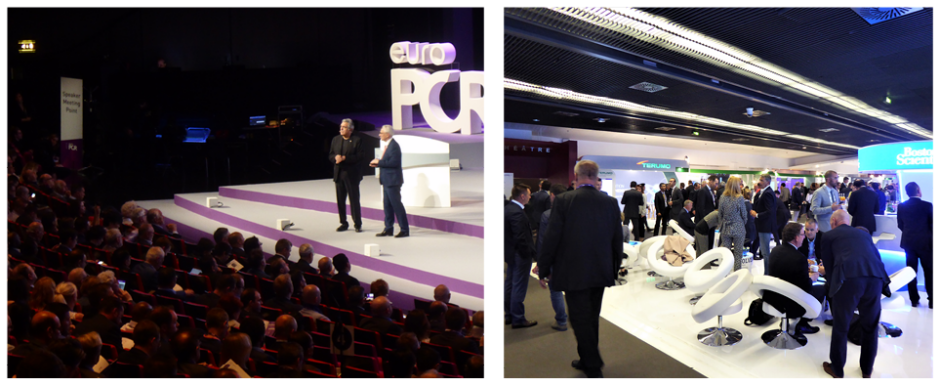
Best Clinical Case Award
This year >1,200 clinical case submissions were received and processed from 74 countries, which were all carefully examined by 253 EuroPCR reviewers. Presented by Prof Jean Fajadet, the 2018 Best Clinical Case Award session saw runners up recognised, including Dr Boris Lescot (France), Dr Soledad Ojeda (Spain), Dr Ozan Demir (Italy), Dr Giorgio Quadri (Italy), and Dr Jean Paul Vilchez Tschischke (Spain). The winner was then revealed as Dr Anantharaman Ramasamy from Barts Health NHS Trust, London, UK, for his case of left main stem trifurcation percutaneous coronary intervention (PCI) using a ‘ping-pong’ technique in acute coronary syndrome. Dr Ramasamy took to the stage to collect his award and was congratulated on his superb presentation before presenting his winning case to the audience.
EAPCI Awards
The European Association of Percutaneous Cardiovascular Interventions (EAPCI) this year offered five fellowships as part of their commitment to maintaining high standards of professional excellence in interventional cardiology. The EAPCI Fellowship Committee announced the winners of the 2018 Education and Training Grants during the EuroPCR 2018 Congress. These included Dr Kasparas Briedis (Lithuania), Dr Andreas Mitsis (Greece), Dr Alexandru Patrascu (Germany), Dr Roberto Scarsini (Italy), and Dr Mohammady Shahin (Switzerland), who were all awarded with a 1-year specialised education programme in a European Society of Cardiology (ESC) member country other than their country of residence. These fellowships provide the opportunity for professionals in their early careers to contribute to the enhancement of academic standards and encourage communication and exchange of ideas between countries.
In addition to these fellowships, this year the EAPCI offered the opportunity for 10 medical graduates to take part in a 4-week observational programme on a dedicated technique in a centre of excellence. The winners were Dr Kirill Berezhnoi (Russia), Dr Micaela Conte (Belgium), Dr Quentin De Hemptinne (Belgium), Dr Ulyana Dryneuskaya (Republic of Belarus), Dr Mohamed El Ghary (Germany), Dr Hatem El Shahawy (Germany), Dr Tomasz Gasior (Poland), Dr Nina Glavnik (Slovenia), Dr Piotr Kalmucki (Poland), and Dr Bejan Stanetic (Bosnia and Herzegovina).
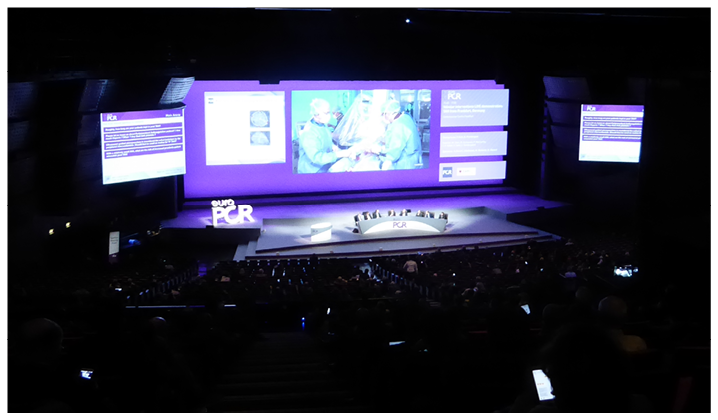
EuroPCR 2018 Best Abstract Award – PCR’s Got Talent
At the beginning of the ceremony it was noted that the number of abstract submissions this year has nearly doubled that received in 2009, showing the improvements in the work and interaction of interventionalists across the world. Prof Alberto Cremonesi commented that 1,087 submissions were received from 58 countries this year and graded by 253 reviewers. For the fourth year running, the PCR’s Got Talent competition for the Best Abstract Award took place on-site during the congress, and the three rounds concluded with six finalists all competing for the prize: Dr Krishnaraj Rathod (UK), Dr Kiril Karamfiloff (Bulgaria), Dr Balazs Berta (Netherlands), Dr Sophia Wong (Australia), Dr Janarthanan Sathananthan (Canada), and Dr Yousif Ahmad (UK). Prof Cremonesi was proud to pronounce Dr Yousif Ahmad, Imperial College London, London, UK, the winner of this year’s PCR’s Got Talent competition for his abstract entitled ‘Coronary haemodynamics in patients with severe aortic stenosis and coronary artery disease undergoing TAVI: implications for clinical indices of coronary stenosis severity’. Dr Ahmad proudly accepted his award and presented his prize-winning work to the audience.

